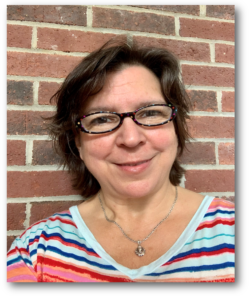NORTHBROOK, IL – AUGUST 18, 2020
IOR Global Services Presents a Bi-Monthly Series:
Featuring Members of our SuperIOR
Language Training Community
IOR’s Language Department is pleased to share a series featuring the language trainers at the heart of the IOR Language Training experience. Stay tuned to your inbox every other month for a spotlight on our SuperIOR Language Training Community!
This Week’s Featured Trainer: Maite Diez, Boston, MA
Maite is a Boston-based IOR Language Trainer, brings over 25 years of experience in teaching English to both adults and children. She holds a Bachelor of Arts in Literature from Eckerd College in St. Petersburg FL, and a Master of Arts in Biology from Harvard. When not teaching, Maite enjoys reading, birdwatching, hiking, and visiting museums.
How is teaching corporate clients
different from traditional students?
For all my students, I learn what interests them. Then we gather English language materials that get them excited. Corporate students are drawn to cerebral pursuits, such as scholarly journals, industry slideshows, prepping for an upcoming presentation, improving their CVs, non-fiction audiobooks, and word play or quizzes. One doctor I worked with was thrilled to study a medical reference book in English. Another student used part of our class time to edit her CV. An engineer student and his wife enjoyed playing a science quiz game in English together.
To build English usage with children, I find a craft, game, puzzle, or project. Children inhabit the physical world and learn best through action. When I showed the kids how to make a fort out of couch cushions, they were exhilarated. Both children and adults benefit from actively using English. Often, we walk together and talk about everything we see. Finding action in the language creates a memory to draw on in future conversations, child or adult.
What is one thing you wish your students’ employers
knew about language training?
English training is vital to building employee confidence. When a person feels heard and understood, they can reach their potential, not only at work but also in their community. Making friends is a vital part of a successful relocation. Language training helps people be more outgoing to meet new friends in their host country. New friends bring more opportunities to practice the language and communicate more effectively at work.
After working together for a couple months and feeling secure in her English comprehension, one student joined a school mother’s coffee morning group and made several good friends. Another student, after working intently on improving her accent, joined an Appalachian Mountain Club hike up Mt. Washington with complete strangers, confident in her ability to communicate in English. Their experiences show that language training translates into social confidence which increases an employee’s satisfaction at work.
Another student used several classes to practice her English pronunciation in order to deliver an important presentation. She was convinced that if she could make herself better understood, she would be noticed and valued by the company. When she succeeded in her meeting, she felt energized about her upcoming projects and her ability to communicate them to others.
I feel like I make a difference when…
I know I’ve helped someone. One of my student’s teachers said he no longer needs extra help in English. His mother told me: “That’s thanks to you!” I felt fulfilled thinking that I’d created a positive result for their son’s effort.
Why do you work with ex-pats or recently located families?
Other cultures are fascinating to me. I feel connected to the whole world when I listen to my students describing different aspects of their homeland. Sometimes we share recipes or discuss artists and writers. We talk about tourist destinations we’ve both visited. I like to direct them to local places that I love, either for their history, culture or natural importance. Boston and New England have diverse attractions my students of all ages can enjoy. When my students have visited a museum or park I recommended, we have lively discussions and gather new vocabulary. We find common ground.
By sharing our different cultural traditions and pleasures, we understand that we share the same human values of family, friends, and a quest for knowledge.
